Heavy rectal bleeding: What could be causing it?
Learn about the possible causes of this condition and how serious they may be.
Bleeding from the bottom: What could be causing it?
Learn about the possible causes of this condition and how serious they may be.
Why does it happen?
While blood on toilet paper after wiping the bottom or the presence of blood in stool isn’t a normal condition, it may not always be a cause for concern.
Here are some common causes that may cause bleeding from the bottom.
Haemorrhoids
These are swollen veins in the lower rectum. There are two kinds of haemorrhoids; internal and external.
While internal haemorrhoids don’t cause pain, they may occasionally bleed.
Anal fissures
Anal fissures are tears that may occur on the lining of the anus, which could happen as a result of straining when passing stools.
These tears may be painful and could bleed.
Infections
Infections from bacteria such as salmonella may cause bleeding and other symptoms like diarrhoea.
The above conditions are not always serious and the bleeding may stop after you get treatment. If bleeding continues, medical help should be sought.
Haemorrhoids
These are swollen veins in the lower rectum. There are two kinds of haemorrhoids; internal and external.
While internal haemorrhoids don’t cause pain, they may occasionally bleed.
Anal fissures
Anal fissures are tears that may occur on the lining of the anus, which could happen as a result of straining when passing stools.
These tears may be painful and could bleed.
Infections
Infections from bacteria such as salmonella may cause bleeding and other symptoms like diarrhoea.
The above conditions are not always serious and the bleeding may stop after you get treatment. If bleeding continues, medical help should be sought.
When is this condition very serious?
If the bleeding is accompanied by certain other symptoms, it may be a cause for concern. These symptoms include:
- Lightheadedness
- Trouble breathing
- Pain in the lower back
- Dark-coloured blood
Individuals experiencing these symptoms along with the bleeding must seek immediate medical attention.

When is this condition very serious?
If the bleeding is accompanied by certain other symptoms, it may be a cause for concern. These symptoms include:
- Lightheadedness
- Trouble breathing
- Pain in the lower back
- Dark-coloured blood
Individuals experiencing these symptoms along with the bleeding must seek immediate medical attention.

Which serious gastrointestinal conditions cause this kind of bleeding?
Angiodysplasia
This happens when enlarged blood vessels in the intestines rupture.
In such scenarios, the bleeding may be excessive and could lead to anaemia from blood loss.

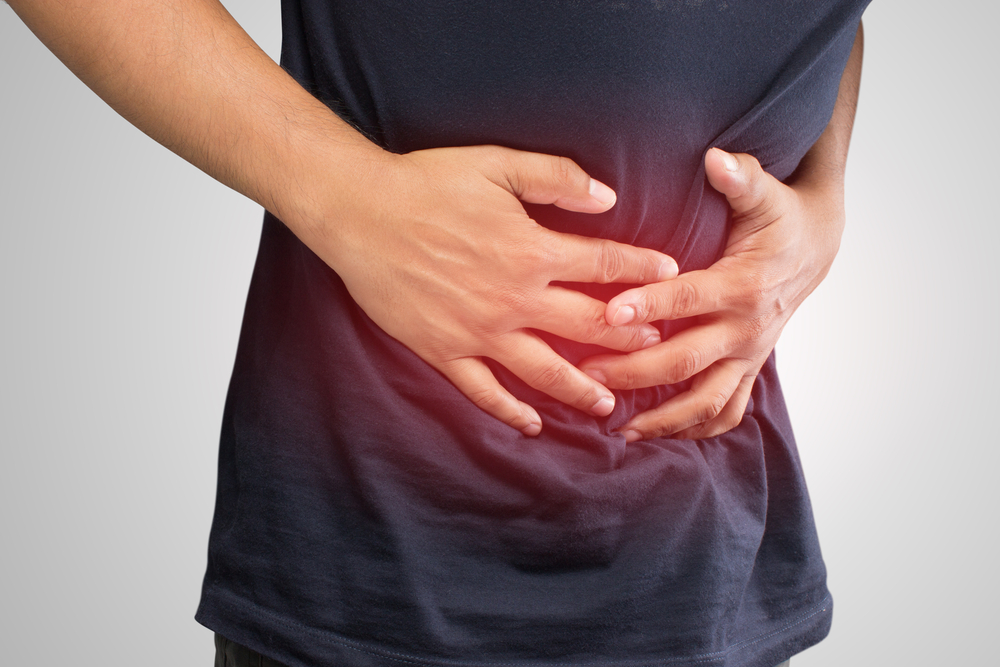
Colon cancer
Patients with colon cancer may have tumours growing in their colons, which have blood vessels in them that may rupture and cause bleeding.
Inflammatory Bowel Disease (IBD)
IBD is an umbrella term used for two diseases: Crohn’s disease and ulcerative colitis.
Patients with these conditions may see blood in their stool and experience abdominal pain.
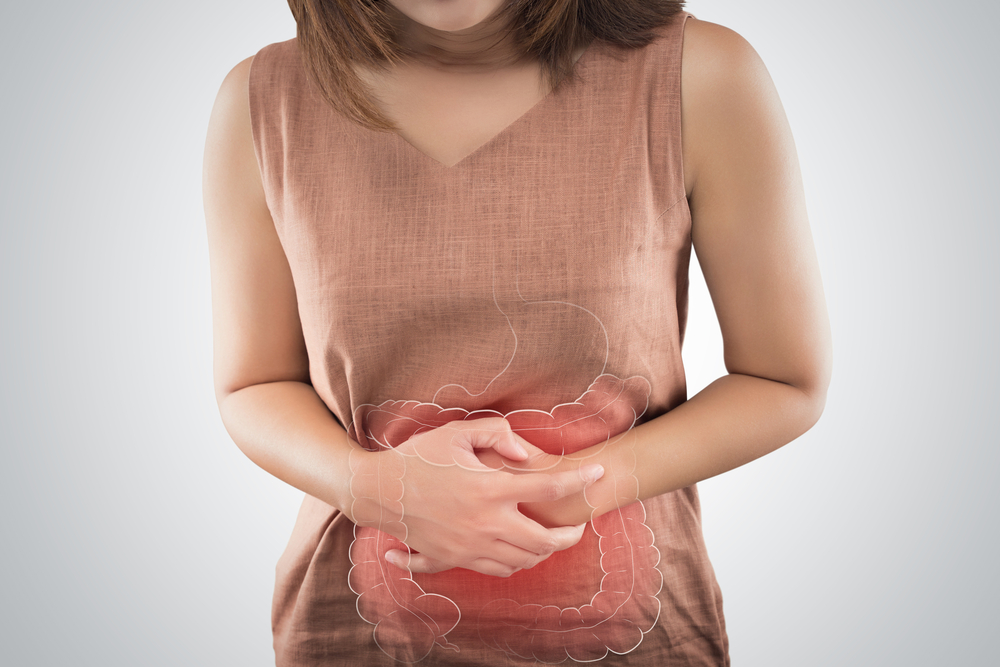
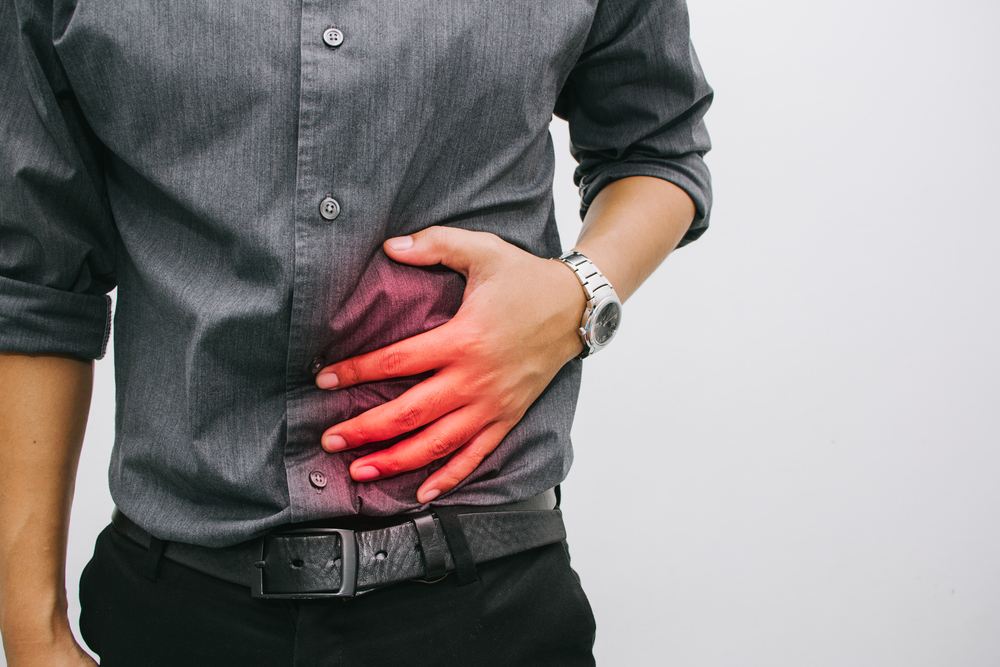
Polyps
Colorectal polyps may appear along the intestinal walls and may sometimes bleed. Usually, these polyps are not harmful but they could turn malignant if not treated early.
Diverticulitis
These are small pouch-like structures that form in the large intestine. These may become inflamed and could lead to bleeding.
Diverticulitis may become a serious condition if left untreated.

Angiodysplasia
This happens when enlarged blood vessels in the intestines rupture.
In such scenarios, the bleeding may be excessive and could lead to anaemia from blood loss.

Colon cancer
Patients with colon cancer may have tumours growing in their colons, which have blood vessels in them that may rupture and cause bleeding.
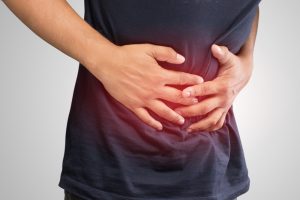
Inflammatory Bowel Disease (IBD)
IBD is an umbrella term used for two diseases: Crohn’s disease and ulcerative colitis.
Patients with these conditions may see blood in their stool and experience abdominal pain.
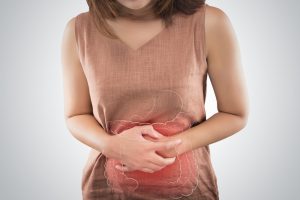
Polyps
Colorectal polyps may appear along the intestinal walls and may sometimes bleed. Usually, these polyps are not harmful but they could turn malignant if not treated early.

Diverticulitis
These are small pouch-like structures that form in the large intestine. These may become inflamed and could lead to bleeding.
Diverticulitis may become a serious condition if left untreated.

Visit the Sydney Gut Clinic
The Sydney Gut Clinic’s team of gastrointestinal specialists are empathic, trusted and experienced, and ensure all patients receive the best medical care and support.
If you experience any of the symptoms mentioned above, get in touch with our team or visit our clinic at the Alexandra Specialist Day Hospital.
FAQs
What does the colour of blood from rectal bleeding mean?
Bright red: The bleeding originated from the colon.
Dark red: The bleeding may be from somewhere higher up in the colon, possibly the small intestine.
Dark and tarry: The bleeding could be in the stomach.
Can something other than bleeding cause changes in the colour of the stool?
Tarry coloured stool may not always be due to bleeding. For instance, some food such as beetroot may cause stool to be darker than usual.
How is the source of bleeding found?
Medical procedures, such as a colonoscopy, flexible sigmoidoscopy or a CT scan may be used to reveal the location of the bleeding.
Get in touch with our team to receive treatment for heavy rectal bleeding.
Sydney Gut Clinic services are only available to patients in Australia.
